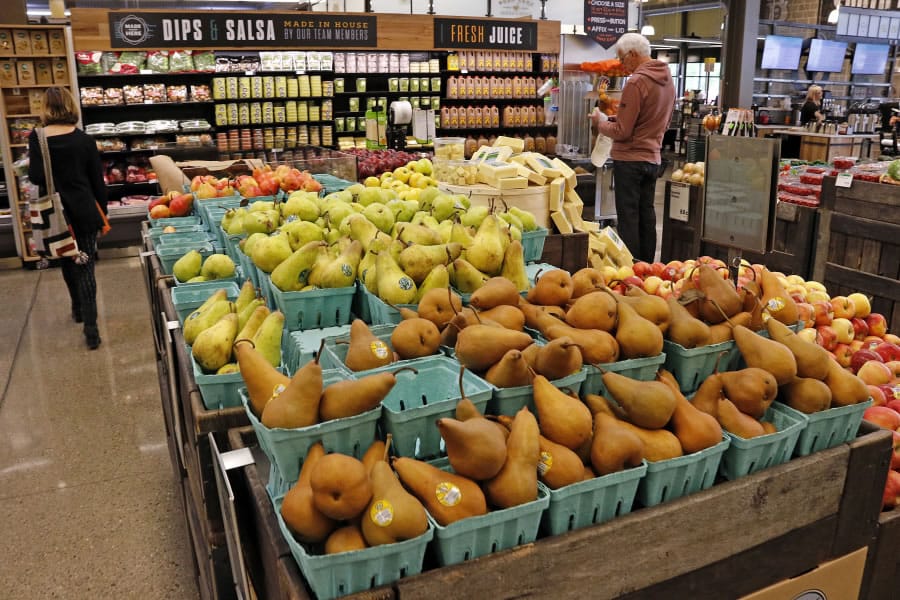WASHINGTON — A House member is urging Congress to hold a hearing to analyze Amazon’s proposed $14 billion acquisition of Whole Foods, a merger that critics say could cramp innovation and hurt workers.
The deal could affect grocery stores and consumers nationwide, Rep. David Cillicine, D-R.I., the top Democrat on the House subcommittee on regulatory reform, commercial and antitrust law, warned Thursday in a statement: “Congress has a responsibility to fully scrutinize this merger before it goes ahead. Failing to do so is a disservice to our constituents.”
In a letter submitted to the panel’s Republican leadership, Cillicine highlighted concerns about Amazon’s dominance in online retail and the potential for the e-commerce giant to use its control over Whole Foods to unfairly disadvantage other businesses.
“This transaction occurs during a long period of economic concentration that has already caused a decline in workers’ wages and mobility,” the congressman wrote, “essentially allowing a small number of monopolists to hoard the ‘fruit of economic growth.’ ”
Amazon declined to comment. Amazon chief executive Jeffrey P. Bezos owns The Washington Post.
Cillicine is not the only member of Congress to call for a close examination of the deal. Rep. Ro Khanna, D-Calif., who represents a district in Silicon Valley, told CNBC last month that the acquisition would “hurt local grocery stores.”
The deal could have major implications for the future of grocery stores and on-demand delivery services, analysts say.
“It’s not what Amazon is getting from [Whole Foods] but more what Amazon can do with them, which is to bring its distribution into play,” said James Bailey, a management professor at George Washington University.
Amazon’s purchase must be approved by federal regulators — most likely the Federal Trade Commission — before it can proceed. But antitrust experts differ on whether the acquisition should raise red flags. Historically, deals involving companies in separate industries have gotten a pass, particularly if they are likely to lead to lower prices. Amazon has made a business out of price competition and proved a willingness to take financial losses.
Sometimes, that has gotten the company into trouble. In 2013, Amazon settled an antitrust lawsuit filed by publishers, including HarperCollins, Hachette and Penguin, who accused Amazon of price fixing on e-books.
Still, some opponents of consolidation acknowledge that the Amazon-Whole Foods deal may be hard for regulators to reject.
“There are a lot of people spooked out by the enormous size of Amazon, but it’s not clear to me there’s any direct competitive harm in this transaction,” said Gene Kimmelman, president of the consumer group Public Knowledge.



